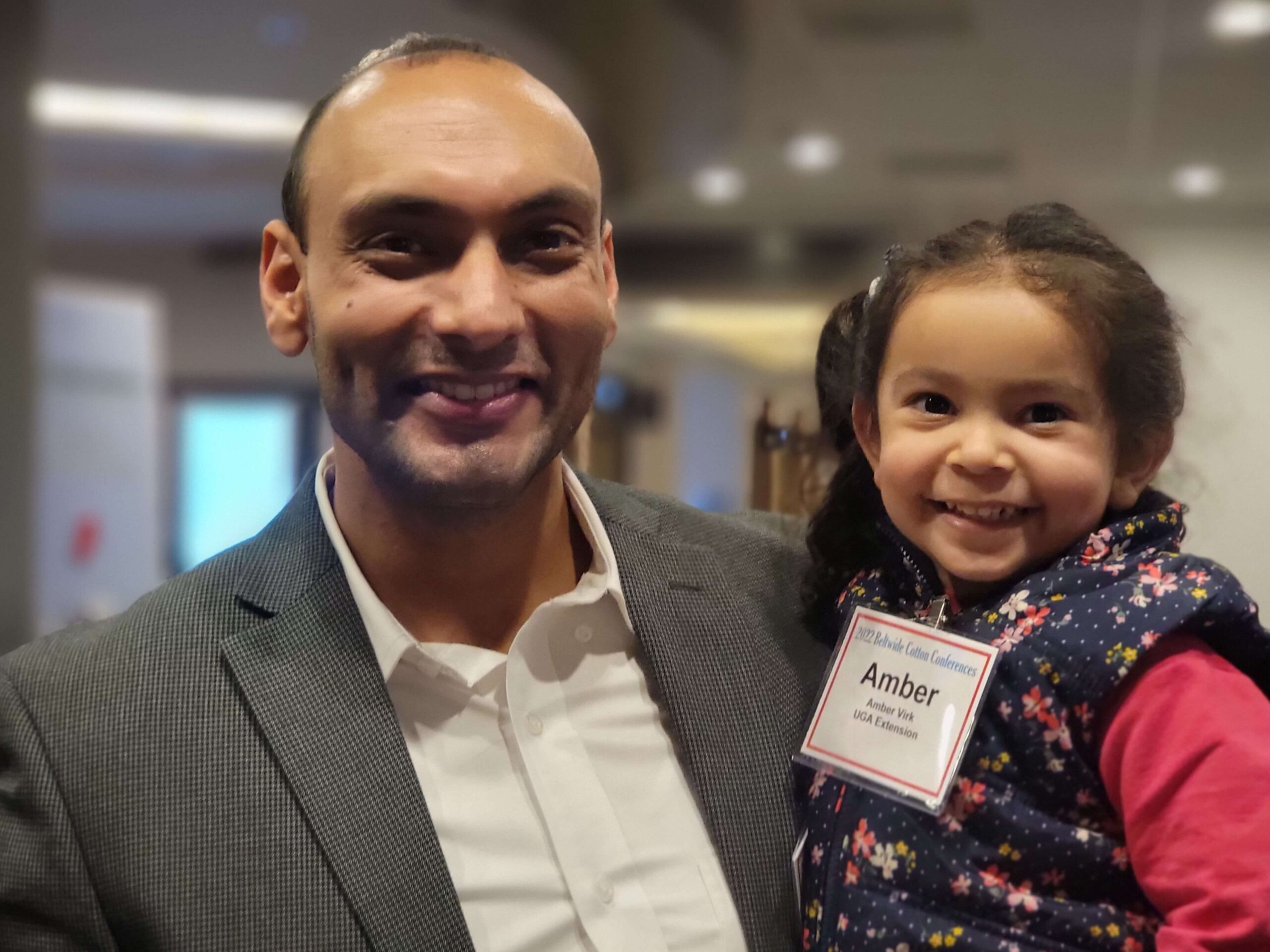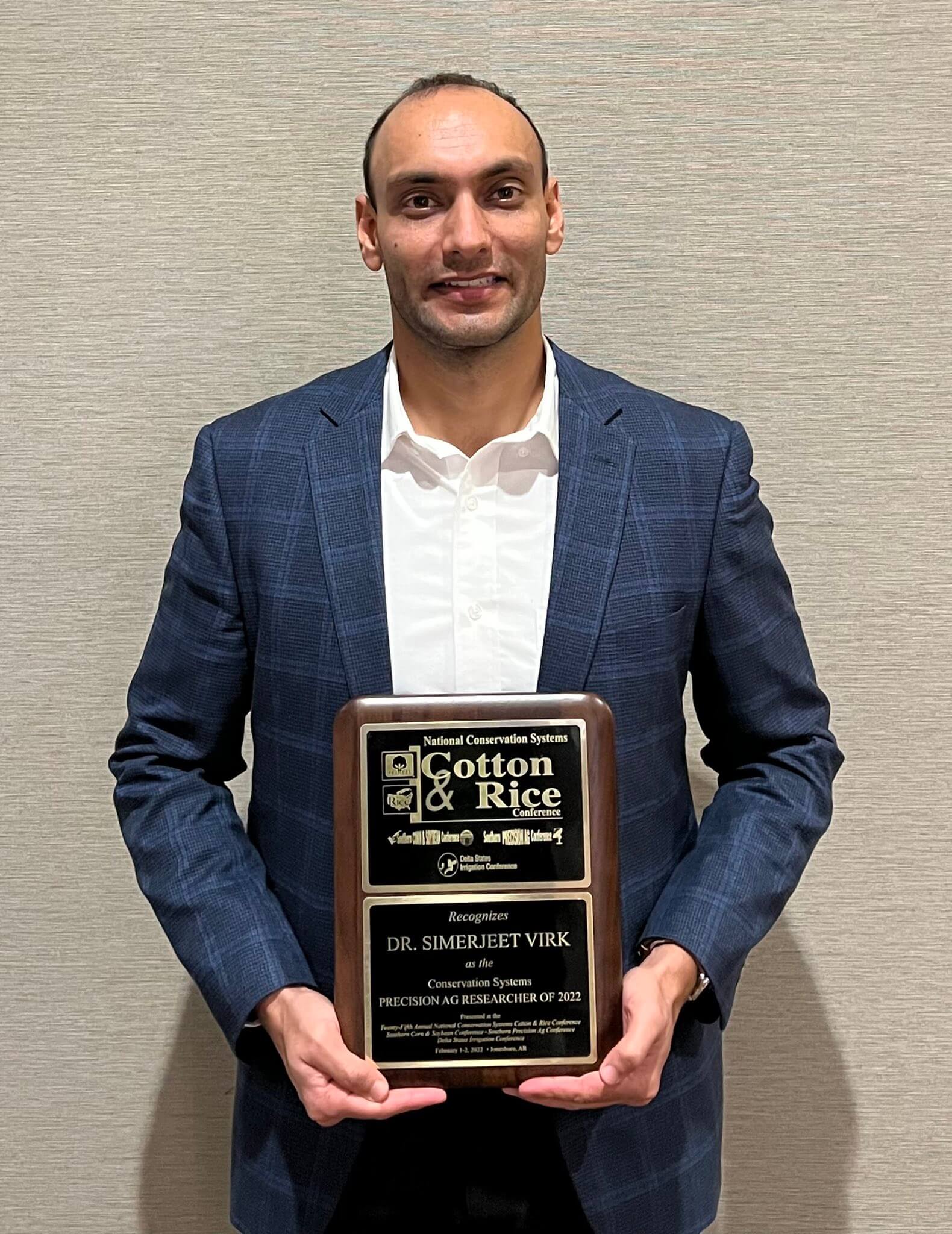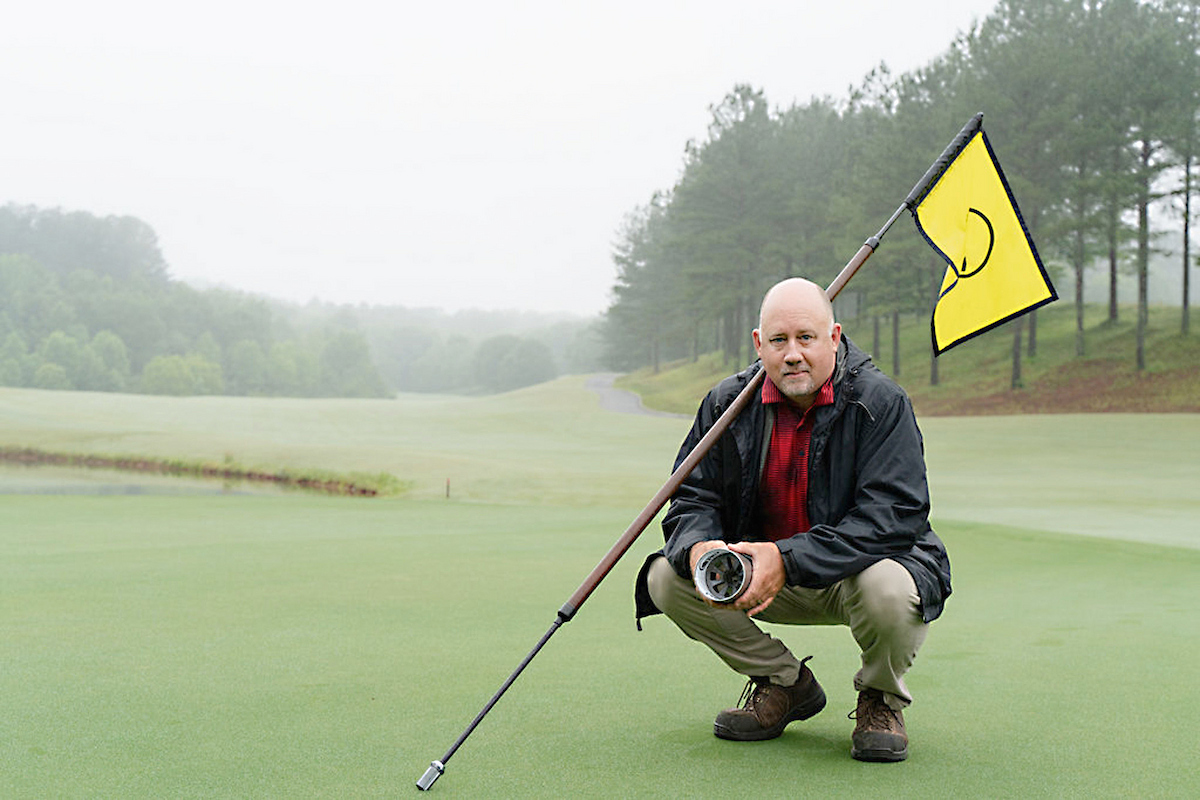
Asked what his day looks like on a regular basis, Simer Virk laughed out loud.
“There are no average days in research and Extension work — every day is different and every season is different,” said Virk, an assistant professor and University of Georgia Cooperative Extension precision agriculture specialist in UGA’s Department of Crop and Soil Sciences.
From working on sprayer projects in the field, meeting with producers to address concerns with recently implemented technology, and analyzing data from early morning trips with his research team, Virk’s research and outreach in the College of Agricultural and Environmental Sciences is primarily focused on advancing the adoption of precision agriculture technology. His goal is to ensure that producers are able to effectively use technology and data management systems to increase production and efficiency on farms across Georgia.
Virk’s childhood, spent on a small family farm in India, was a significant influence on his career trajectory. From watching workers harvest wheat by hand in his youth to helping growers manage their crop inputs, Virk has always been interested in strategies that make farming easier, more efficient and more profitable.
“During a summer internship program at the University of Moscow, I spent some time with larger machinery and technology that was really an eye-opening experience. I was able to see what technology can do and its future potential in agriculture, so I wanted to learn and be a part of that,” he said.
After receiving a bachelor of science in agricultural engineering in India, Virk moved to the U.S. to pursue graduate studies at Auburn University in Alabama. He then worked in the agriculture industry before deciding to pursue a doctorate in biological and agricultural engineering at UGA, which he completed in 2020.
When he first moved to the U.S., Virk said engineers and producers were just beginning to consider and adopt GPS guidance or auto-guidance systems on their farms.
“That pulled me in the precision agriculture field right from the beginning — what’s remarkable is that we were spending a significant amount of time demonstrating and convincing producers to adopt this technology in their operations. Today, if you tried to take away a producer’s auto-guidance system, they would probably fight you because of the benefits associated with it. They are so used to that kind of technology now,” Virk says.
Virk’s dedication to his research is not going unnoticed in the precision agriculture industry. In February, Virk was named Precision Ag Researcher of the Year at the 25th Annual National Conservation Systems Cotton and Rice Conference held in Jonesboro, Arkansas.

“I don’t know why we still call it ‘precision ag’ — it is just ag now because of the technology advancements. Everything growers do today on their farm has some sort of precision to it,” Virk said of his chosen field.
Precision agriculture specialists spend a considerable amount of time determining data-driven strategies to enhance production, thinking through how they can help producers see the value in technology investments.
This often involves consultations with growers, demonstrating the technology, and troubleshooting when it seems a strategy or tool isn’t working in a particular field. Virk believes this is all worth the time investment, however, because when a producer is able to find success with a certain technology, the benefits extend far beyond that one operation or one farm.
“One of the most common things we discuss about agriculture and the environment is our growing world population — how are we going to produce enough food to meet that growing need?” Virk said.
This is where precision agriculture technology has the potential to transform the way we grow our food. With increased automation, more accurate sensors and remote sensing capabilities, precision agriculture is poised to change the face of agriculture at a faster pace than ever before.
That fact motivates Virk to continue doing all he can to get the word out about how technology and data can create meaningful shifts in a farming operation. And he often gets that word out through Twitter.
“I mean, why wouldn’t you share what you’re working on — and also want to know what cool projects others are working on? I think social media is one of the most underutilized tools for researchers and Extension professionals, but that’s also been changing as more academic professionals start to use it,” Virk said.
On agriculture Twitter, it’s not unusual to see @PrecAgEngineer tweeting about all things agriculture tech. From the latest field data collection to his daughter’s first attendance at a professional conference, Virk believes there is value in helping the public understand the role agriculture takes in our daily lives.
“Precision agriculture is a toolbox with a lot of different basic and specialty tools – those technologies are the very things that make the difference not only on the field level but also on the global level,” he said. “At the end of the day, we want to help producers find the right tools for their operation. These tools can help them be more efficient, productive and profitable. All of that also translates to growers producing more food to feed the world’s growing population.”
To learn more about the university’s work in integrative precision agriculture, visit precisionag.caes.uga.edu.



